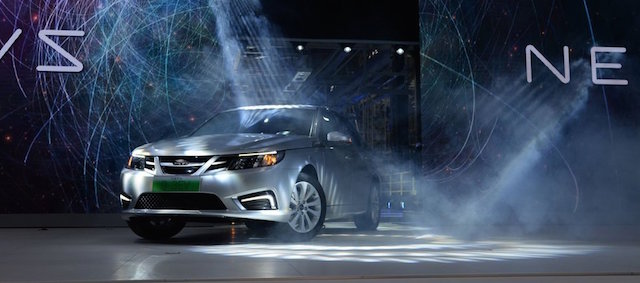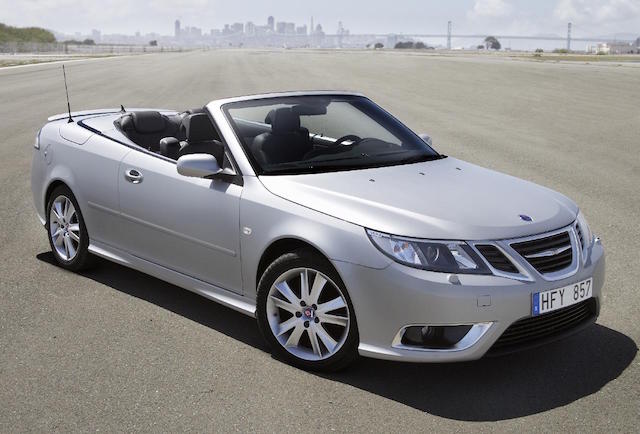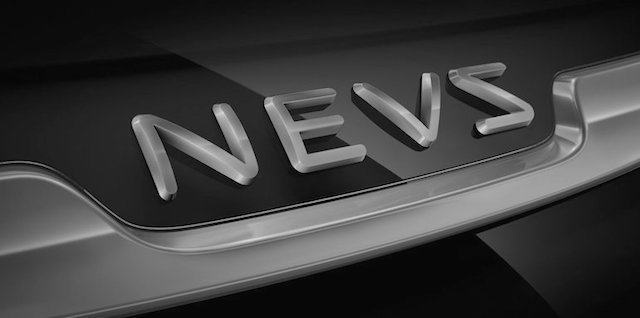
The Saab 9-3 sedan that was killed off five years ago by parent General Motors has been reborn and rebranded as a battery-electric (EV) car.
The four-door is being built by Chinese consortium National Electric Vehicle Sweden (NEVS), which acquired the assets of Saab Automotive after GM shut the Swedish carmaker down in 2012.
The new EV is called the NEVS 9-3 – largely a left-hand-drive Saab 9-3 inside and out but with an electric powertrain. It will have a range of 300km and a top speed of 140km/h.
NEVS 9-3 will be built for Europe and China. European production will come from Saab’s factory in Trollhattan, Sweden; China’s from NEVS’ plant in Tianjin.
Initial reports say Tianjin will be capable of building 50,000 cars a month, with early production focusing on a 150,000-strong order from a leasing company. ‘Phase II’ of NEVS’ plan could mean production capacity jumping to 220,000 a month.
In addition, NEVS is currently in talks with the governments of Shanghai, Chengdu and Hangzhou about creating a second production facility in China, with the move aimed to satisfy the demand of the Chinese market for so-called “new energy vehicles,” which include hybrids and electric cars.
“We are embracing a once-in-a-lifetime opportunity in the automobile industry with the adoption of new technologies moving forward way faster than we expected,” company Chairman Kai Johan Jiang said in an interview.
“Car-sharing, electrification of automobiles and autonomous driving are the inevitable trend of future transport.”
NEVS’ rapid plans to restart production have been linked to China’s voracious demand for electric and hybrid vehicles, the production of which is expected to grow in the coming years due to the country’s electric vehicle mandates.
The Chinese carmaker, one of 15 granted new-energy car production licenses by the Chinese government, already has orders for 300,000 vehicles from ride-sharing companies.

The first NEVS 9-3 rolled off the production line on December 5. The carmaker said it has a high-efficiency cabin air filter system called ACAC (Always Clean Air Cabin) that can remove 99 per cent of air particulates.
The company is promising a “fantastic” driving experience, thanks to a low centre of gravity and Saab’s engineering expertise. Owners can also expect to benefit from a smartphone app-key. In-cabin Wi-Fi can receive wireless software updates.
NEVS is not allowed to use the Saab brand name. Saab parent Saab AB revoked NEVS’ right to the name after NEVS got into financial difficulty a few years ago.
In addition to NEVS’ use of the 9-3 sedan platform – it hasn’t changed much in 10 years – Turkey is currently engaged in a national car project in collaboration with NEVS that will also make use of some Saab hardware.
The name of Turkey’s national car has not been announced yet, but it is expected to debut in the next two years, and will be produced in Turkey for the European market.

